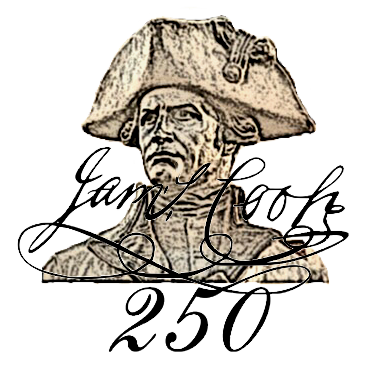A major new initiative aimed at commemorating Captain James Cook’s arrival in Australia and marking the impact on Australia’s Indigenous peoples has been launched on Thursday.
Through a series of exhibitions around the country, educational projects and outreach events, the program, Encounter 2020, will commemorate the 250th anniversary since Captain Cook arrived in Botany Bay and went on to chart the east coast of Australia. Central to it will be the lasting impact it had on Australia’s First Peoples and in shaping the country’s future.
However, Cook’s arrival remains contentious in parts of the Indigenous community.
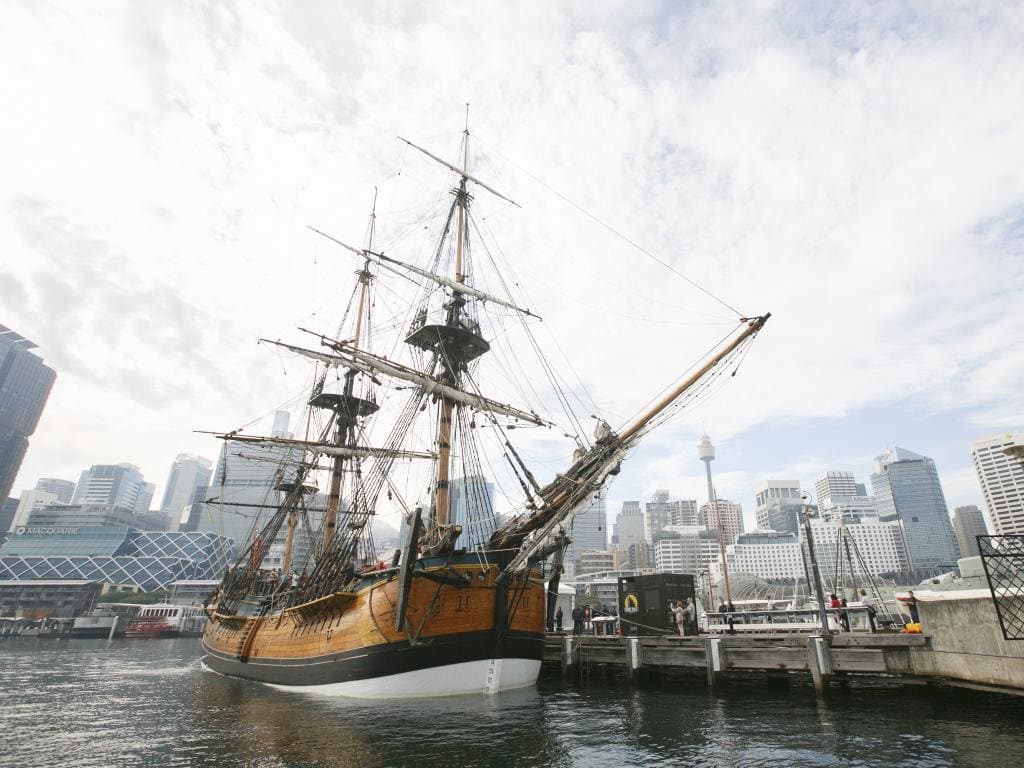
As part of the initiative, a replica of HMB Endeavour will undertake a circumnavigation of Australia. Photo: Tim Pascoe
Speaking at the Australian National Maritime Museum, which has devised the program, Indigenous Affairs Minister Ken Wyatt said: “Cook’s visit in 1770s is not viewed by all Australians in the same way.
“For some, it represents a unique and important scientific journey of discovery and, for some, the legacy of the voyage symbolises loss of country, language and culture. It is important that messages reflect both perspectives – the view from the ship and the view from the shore. Both are not a contested history – it is a shared history of our nation’s point in time from which we emerge on a journey that realised the way in which we live today. Truth telling to me is not a contest. It is an acceptance that there can be shared stories in both Indigenous and non-Indigenous communities.”
He said that he hoped healing would come from the program, as Australians learn more about their shared history. “Healing that results from acts of truth-telling cannot be quantified and can lead to significant moments of reconciliation into the future,” he said.
As part of the initiative, a replica of HMB Endeavour will undertake a circumnavigation of Australia which will involve communities around the country as it continues on its voyage.
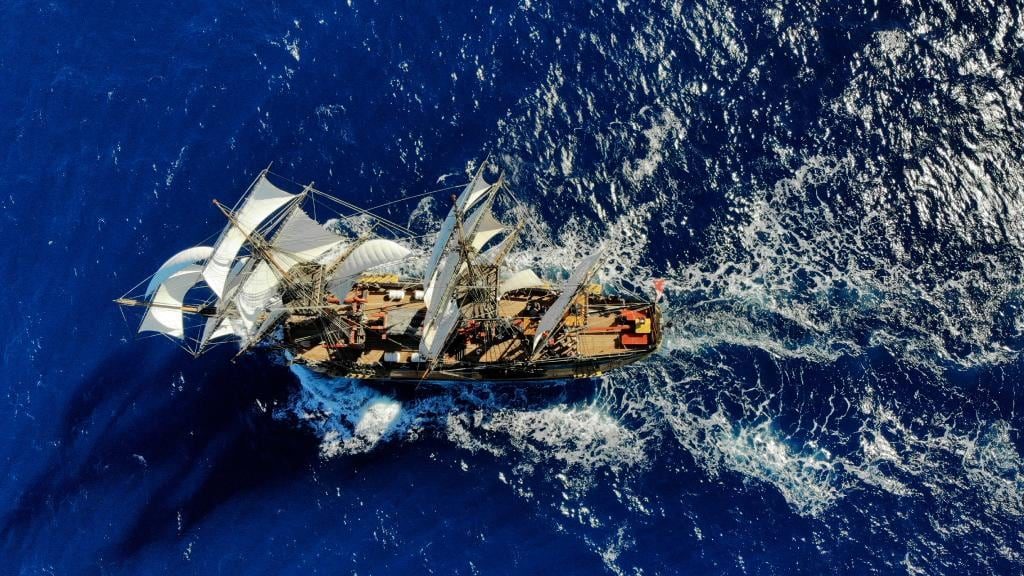
The voyage of the HMB Endeavour from Noumea, New Calendonia to Sydney. Picture: Toby Zerna
It will be accompanied by a travelling exhibition, which will set up in each of the 26 ports that the ship visits.
Also speaking at the launch, Communications Minister Paul Fletcher said: “Marking 250 years since Captain James Cook’s first Pacific voyage will allow all Australians to reflect on, discuss and re-evaluate the lasting impact that this has had on us all.”
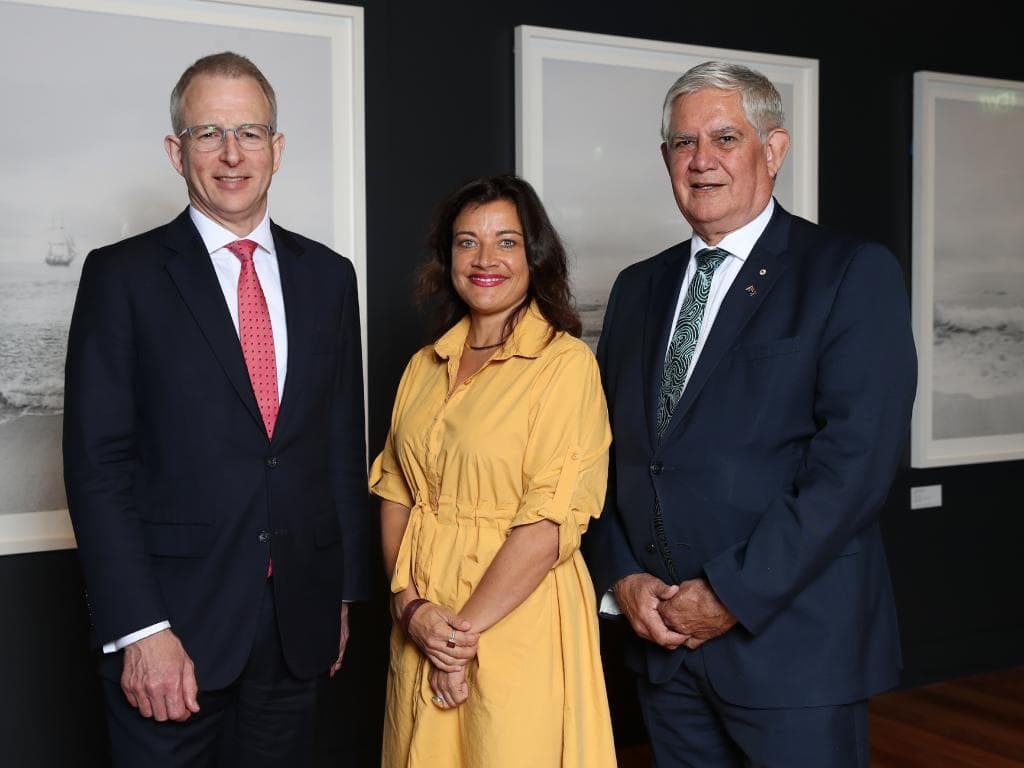
Communications Minister Paul Fletcher, Indigenous Australian Alison Page and Indigenous Affairs Minister Ken Wyatt at the 250th anniversary event of Captain James Cook’s charting of the east coast of Australia. Picture: David Swift
The Prime Minister, who was due to launch the program, passed on his apologies for his non-attendance.
Mr Fletcher said the PM was committed to the project not only because he is the member for Cook “but more importantly as a Prime Minister determined to bring Australians together including through a shared recognition of important milestones in our history, including, of course, a shared reflection on the meaning of those milestones for both Indigenous Australians and those more recently arrived”.
He said Cook’s voyage “added enormously to knowledge of geography, of navigation and of science”.
“We’ve long recognised and given up the idea that Cook discovered Australia, that it is a flawed idea. He did not. Our country has a 60,000 year human history.”
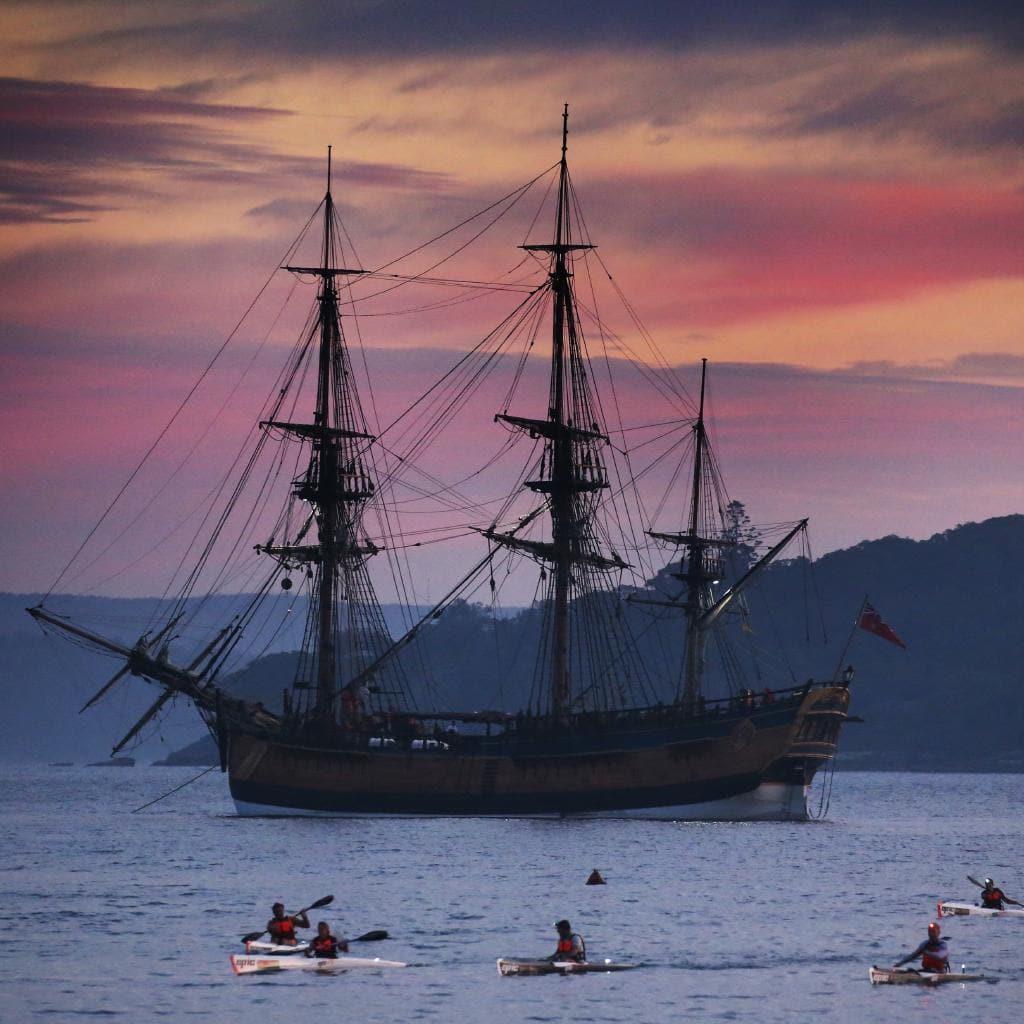
The Endeavour ship anchored in Rose Bay at sunrise. Picture: John Grainger
He said the anniversary was an opportunity for “all Australians to come together around our shared history to earn more about the journey itself but also time to reflect on our 60,000 years of Indigenous history which is so much a part of modern Australian identity.
“This program should act as a spur of our own discoveries and our own scientific advancement.”.
Addressing concerns around the project and the possibility of controversy about it within the Indigenous community, Museum CEO and Director Kevin Sumption said: “It is the nature of historical study to always investigate with new eyes and seek out all points of view.
“As a cultural institution we believe it is our role to continually analyse our history and broaden our country’s knowledge. In the 250 years since Cook arrived we have primarily looked at it from one perspective, that from the ship. We want to take this opportunity to also to look at it from the perspective of the First Australians on the shore.
“As the custodians of the Endeavour, we understand that the ship is a symbol that elicits strong feelings – but it is important that we hear and listen to the voices and stories, we know they are difficult conversations but they are conversations we have to have. We are working with communities around the country to find ways for them to express their views safely and respectfully.”
Alison Page, Aboriginal artist and storyteller, and councillor at the Australian National Maritime Museum, said: “As part of the Indigenous community at Botany Bay I am absolutely thrilled to be a part of what I believe could be one of the most important and challenging moments in Australia’s history because it’s going to be the first time that we all come together as a whole nation to learn our true history.
“The first part of that truth is that our history has been largely untold. Until now we have primarily looked at Cook’s voyage from one point of view and now, for the first time, we are adding the stories of Australia’s first people to that narrative.”
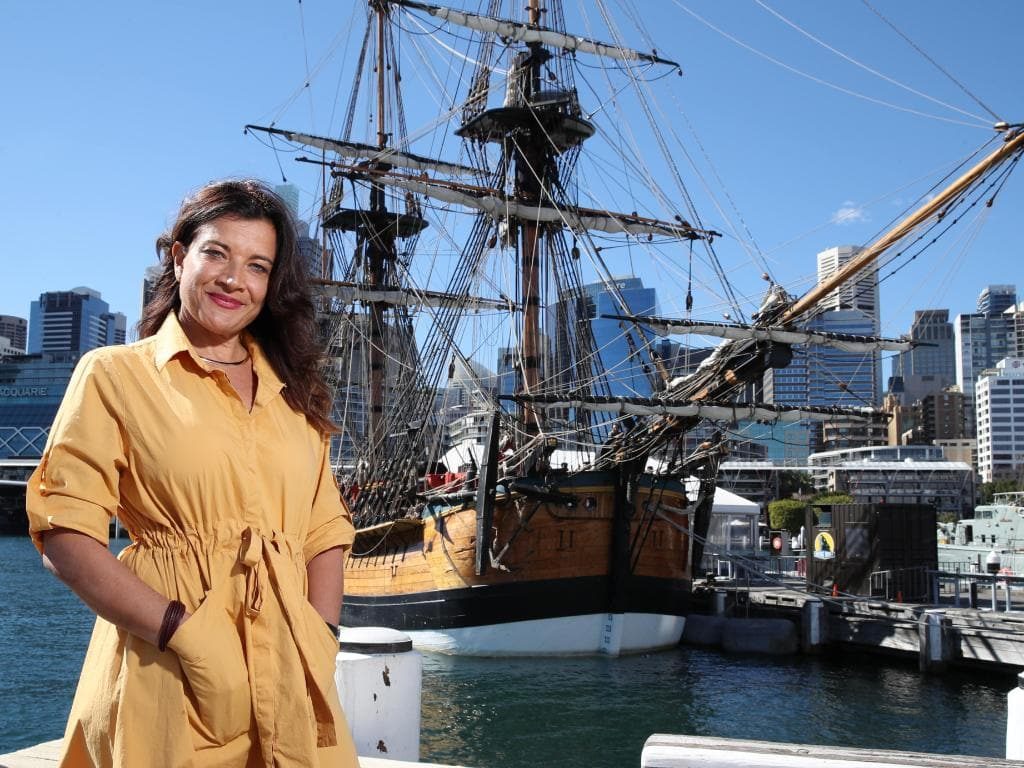
Aboriginal artist Alison Page said she was “thrilled” to be a part of the initiative. Picture: David Swift.
She said that part of Australia’s origin story had always been missing – that of the voices of Aboriginal peoples.
“Now, with this 250th commemoration we’ve got the chance to address that and find a genuine narrative balance between the ship and the shore,” she said.
“We believe that Australia is ready for this conversation and we can use the power of storytelling and art to stimulate this absolutely critical conversation.”
View the story on the Daily Telegraph website
